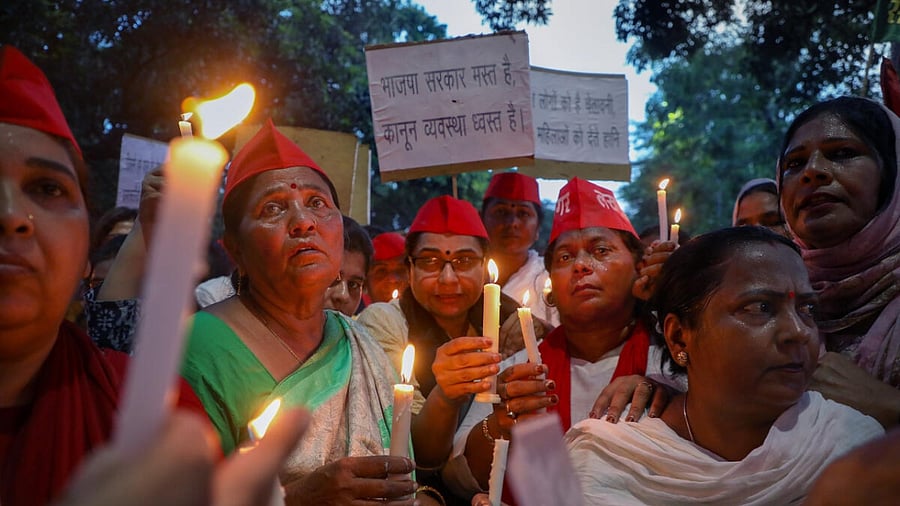
Eminent personalities of Manipur have denounced the naked parading of two women in Manipur, which has created outrage in the nation after the video on it went viral on social media.
The personalities - ranging from a film maker, musician, academician to an entrepreneur - have termed the incident as "barbaric, shameful and against the human race" and demanded "strictest" punishment for the culprits.
The immediate focus should be on initiating efforts to stop the ongoing violence in the northeastern state, they said.
"It is an utterly barbaric and shameful incident against the human race. There is no word to express the shock of it," National Award winning filmmaker Haobam Paban Kumar told PTI.
He said that he had never heard of such a "heinous crime" by his people in his entire lifetime.
About the ongoing violence between two communities in the state since May 3 this year, Kumar said: "Initially what we heard was that people were fighting for land, poppy cultivation and ST status. But now it has become very confusing. It is different this time.
"Violence does not follow any rule and has to stop. It cannot go on," Kumar said.
Eminent folk musician and singer Guru Rewben Mashangva said the incident is "very painful and shameful as well.
"How did the mob arrive at the decision that they needed to disrobe and assault women like this? It is very strange to me," he added.
Mashangva, famous for reviving musical traditions of the Tangkhul Naga community in Manipur, said even if two communities of the state are fighting for some reason they should fight each other like warriors.
"The communities in Manipur call themselves warriors and this is what they do to women ! This is sickening and should not happen again. This is what I feel as a musician," he added.
Prof Angom Dilip Kumar Singh of Manipur University said that the incident seen in the video is "outrageous and extremely unfortunate".
The perpetrators must be punished as per the law of the land, he added.
"This is just one of the videos that have surfaced. There are many such videos showing gruesome attacks and assaults on the modesty of people in general and women in particular," he added.
The academician claimed that many unfortunate incidents took place in the first two days since the violence erupted in Manipur on May 3 and people shot videos of those.
"Because of the internet ban, these were not circulating widely. But people here are sharing the videos now through bluetooth and other wireless means. This must stop," he added.
Describing the incident as "wrong and highly condemnable" irrespective of communities involved in it, entrepreneur Yaikhomba Ningthemcha said it should never recur anywhere in the state or outside.
"Even during wars, there is the Geneva Convention for humanitarian treatment and women's modesty is respected by enemy forces. But in Manipur we are not at war but still such a thing occured. The victims were innocent people," he added.
Ningthemcha wondered why the people of the country remained silent for 77 days when Manipur was burning due to the clashes by tribes inhabiting in the state.
The May 4 video of the parading of the two women in a Manipur village surfaced on July 19 and went viral.
He said, "It took one video to shake the people of the country out of the stupor about the situation in Manipur. Are lives lost in the continued clashes not precious? What about those thousands displaced? Do we need videos every time?
"Only talking about the incident will not help. Everyone should focus on how to stop the violence. I think political parties and civil society groups must take the initiative. People must start talking about others," Ningthemcha added.
More than 160 people lost their lives and several thousand others were injured since ethnic clashes broke out in Manipur on May 3, after a 'Tribal Solidarity March' was organised in the hill districts to protest against the Meitei community's demand for Scheduled Tribe (ST) status.
Meiteis account for about 53 per cent of Manipur's population and live mostly in the Imphal Valley. Tribals -- Nagas and Kukis -- constitute another 40 per cent of the population and reside in the hill districts.